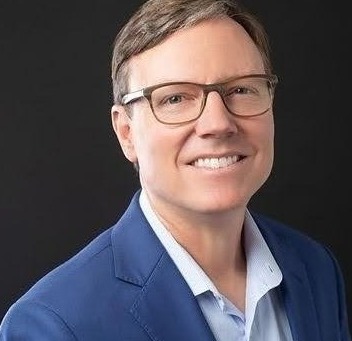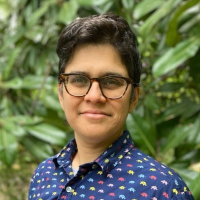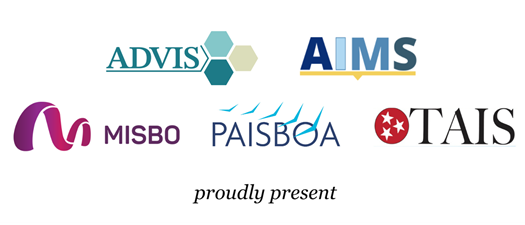2025 Human Capital Development: Aligning Compensation to Strategy and Vision
Oct. 9, 16, 23 , 30 | Nov. 6, 13, 20 | Dec. 4
Join Us Virtually
This intensive eight-week program is designed to help independent school leadership teams begin to develop a comprehensive and strategic approach to human capital development. From a foundation of clear values and vision and an assessment of current realities, leaders will explore how different compensation strategies might align with larger school-wide goals of recruiting, retaining, and growing a diverse and talented staff, advancing workforce equity and employee thriving, and ensuring both strategic advancement and organizational sustainability. Participants will work in mixed groups and school-based teams to develop a direction and plan, culminating in a personalized presentation deck that a Head of School and CFO might use to propose a compensation strategy to their board.
Target Audience
- Heads of Schools
- Associate Heads of School
- Chief Financial Officers
- Directors of Human Resources
- Division Directors
Learning Objectives/Outcomes
-
Clarity of Purpose: Clearly articulate with their team the key strategies and priorities that are driving their school at this moment, and leverage that shared clarity of purpose in analyzing and aligning the systems toward the highest priorities.
-
Problem Statement & Generative Response: Articulate the driving goals (e.g. equity audit of current compensation and/or performance management system; development of school-wide compensation strategy; improved recruitment, retention, and development practices with a focus on BIPOC faculty; etc.) and use a design-thinking approach to generate and evaluate possibilities.
-
Context: Identify and understand various models and approaches across schools with regards to compensation and human capital development.
-
Systems Mapping: Assess the system resources, pressures, and pathways that lead to possible solutions.
-
Solutions Development: Propose and support one or more viable strategies to address the problem statement(s).
-
Proposal: Clearly and effectively communicate the proposed solution to a board trustee or committee.
I. Introduction + Chosen Building Block
At the heart of every independent school is a faculty, staff, and leadership team who carry the torch of the school’s mission and bring that mission to life each day. Meaningfully compensating the employees delivering on this mission is critically important to the vibrancy and stability of your school. In our opening session, we set the stage around employee flourishing and leadership strategies. We also dive into some foundational content around how schools are compensating employees, including approaches to salaries, stipends, and benefits. Leadership teams will have the opportunity to explore mission-aligned compensation, mindful of the financial realities of the independent school financial model.
II. Setting the Stage - Views from the Balcony and the Dance Floor
This early session of the series provides an opportunity for participants to reflect on the intersection of their own personal leadership experiences and their current school culture. We explore the values, beliefs, and aspirations that inform the way we work as individuals within the context of a community, and discuss the ways that we are most aligned with and energized by the mission, vision, and strategic priorities of our school.
From here we set out to explore the big “Why” driving your school community - the reason it exists and the difference it is seeking to make, and we then discuss the extent to which this Why is (or isn't) aligned with our approaches to human capital development. This exploration sets up the identification of a “winning aspiration” - a top priority or goal for your school to achieve as it relates to mission-aligned compensation strategy.
III. Identifying Core Challenges - Framing the Issue
During Session III, you will have time as a team to explore challenges associated with your goal/winning aspiration. People often view challenges as technical problems, with clearly definable and known root causes that can be addressed by employing targeted solutions or by bringing in someone with specific domain expertise. Because we like to solve problems, we tend to frame and approach most challenges as if they were technical ones. This can be a problem if a challenge is actually an adaptive one or has an adaptive component.
This session provides you with an opportunity to identify and categorize the key challenges that may provide some resistance to attaining your winning aspiration, and to then articulate a Challenge Statement that focuses on the most important or potentially impactful barrier to accomplishing your goal. This challenge statement is then framed as a “How Might We” question to set up the exploration of possible pathways forward.
IV. Contending with Core Challenges - Imagining Possibilities
This session provides guidance on how to understand and navigate adaptive challenges by exploring a 6-step process for guiding a community through the process of wrestling with adaptive challenges. To do this work well requires collaboration and innovation. As part of session IV, participants take an “Innovators Style” inventory and we discuss the implications of it on approaching innovation as a social process within the context of your own team.
From here, we discuss an array of possible pathways to contend with the Challenge Statement and How Might We question that stands in the way of attaining your winning aspiration around compensation strategy and human capital development. Each team identifies two of their most promising ideas to move forward into the next phase.
V. Systems Mapping
In this session, teams take two of their most promising ideas and craft a 7-part systems map for each one. This is not a “project plan” to implement your idea, but is a tool to help teams consider ideas from the perspective of design/systems thinking. This exercise allows teams to consider the pathway, context, outcomes, metrics, work, resources required, and external pressures that may impact their promising possibility.
VI. The Conditions of Success & Roadmaps to Realization
This session layers in another tool to evaluate and refine ideas by introducing the What Would Have To Be True line of questioning. This framework helps teams uncover the conditions in which an idea will thrive by considering the perspectives of stakeholders, the school, and competing forces. Teams are given the chance to apply the WWHTBT framework to both of their promising ideas and consider which of the conditions identified are not yet true, or if unknown, how they might test for them. Next, teams review their Systems Map with the WWHTBT questions in mind to consider if any of the steps (goals, metrics, work, etc) need to be refined if certain conditions are not currently true.
VII. Pulling It All Together and the Path Ahead
This session provides teams with a chance to consider priorities and next steps for the next 30, 60, and 90 days as they map out a roadmap to realization. Additionally, teams are introduced to their Pitch Deck template as a vehicle to pull all of their pieces together to tell a story of systematic inquiry.
VIII. Pitch Deck Practice, Sharing, and Feedback
This session provides teams with an opportunity to practice telling their story, guided by their pitch deck, and receive feedback from the other program participants and the program leaders.
 Patrick Schuermann is one of the nation’s leading experts in educator compensation. Following a career spanning elementary, middle and high school teaching, tutoring, coaching and leading in both independent and public schools, Patrick’s doctoral dissertation at Vanderbilt University, “An Integrated Approach to Professional Development, Faculty Evaluation, and Compensation: Resources for Independent School Leaders”, allowed him to visit independent school campuses across the country to explore how schools were seeking to creatively cultivate mission-aligned human capital.
Patrick Schuermann is one of the nation’s leading experts in educator compensation. Following a career spanning elementary, middle and high school teaching, tutoring, coaching and leading in both independent and public schools, Patrick’s doctoral dissertation at Vanderbilt University, “An Integrated Approach to Professional Development, Faculty Evaluation, and Compensation: Resources for Independent School Leaders”, allowed him to visit independent school campuses across the country to explore how schools were seeking to creatively cultivate mission-aligned human capital.
Following its completion in 2006, Patrick served as the founding Director of Technical Assistance for the U.S. Department of Education’s National Center for Educator Compensation Reform that oversaw the federally funded Teacher Incentive Fund program. In this capacity, Patrick worked with a talented team of multidisciplinary experts to provide support to some of our nation’s largest and most complex school districts (such as New York City, Chicago, Los Angeles, Houston and Miami), an array of rural districts, charter schools, and State departments of Education with the design, implementation and impact evaluation of their innovative compensation systems for educators and school leaders. During this time, Patrick and the research team published multiple guidebooks and research reports to support innovative compensation system design. In his role as the Director of Policy for the Center, and with the support of the Aspen Institute, Patrick worked with a team of content experts to support members of the House and Senate Committees crafting our country’s policy agenda around compensation reform. Concurrently, with support from the Gates Foundation, Patrick led a team of education and technology experts in the development of multimedia resources to help district and school leadership teams navigate the work of compensation system innovation.
 Over two decades as an independent school educator and academic leader, Meera Shah has overseen the professional growth of faculty at the department and all-school level, run leadership teams, and shepherded curricular and programmatic change in schools. Meera founded Trey Education to help independent school leaders move their faculty and programs forward.
Over two decades as an independent school educator and academic leader, Meera Shah has overseen the professional growth of faculty at the department and all-school level, run leadership teams, and shepherded curricular and programmatic change in schools. Meera founded Trey Education to help independent school leaders move their faculty and programs forward.As a consultant, she's provided one-on-one thought partnership and mentorship for academic leaders, facilitated custom all-school leadership development programming for department chairs, coached teachers and developed teacher mentorship programs, facilitated team retreats, partnered with regional associations for professional learning, supported schools and leaders with program visioning and development, optimized schedules, conducted senior administrative searches; and more. In short, Meera provides strategic school leaders with added capacity, expertise, and third-party perspectives and facilitation.
Meera partners with schools and leaders with the belief that change, growth, and empowerment are intertwined, and thus prioritizes authentic relationships, responsive design, and collaboration in her work.
Trained in Biomedical Engineering (Sc.B., Brown University), Meera quickly realized she was more excited about having an impact in the classroom than at the lab bench and began her career in independent schools–and hasn’t looked back since, having been a community member and educator at boarding, day, co-ed, single-gender, 6-12, pK-12 schools, face-to-face, and online schools.
After a decade of wearing all the typical independent school hats (teacher, advisor, coach, grade dean, on-campus faculty, etc.) at Dana Hall School (MA), she studied Learning & Teaching with a focus on leadership (Ed.M., Harvard Graduate School of Education), subsequently serving as a department head at Beaver Country Day School (MA). Meera brought her passion for faculty development and administrative leadership south to serve as the academic dean and then associate head for teaching and learning at Carolina Day School (NC). Afterward, as the director of studies at One Schoolhouse (DC), Meera discovered her excitement for working with–and in service to–a variety of schools, which led her to found Trey Education. She also supports schools with senior administrative searches in partnership with Educational Directions.
Meera lives in Asheville (NC) with her wife and two kids (twins!), and enjoys spending time with her family.
PROGRAM FEES
Member Schools
This ticket is for a team consisting of
2-5 people from the same school.
Non-Member Schools
This ticket is for a team consisting of
2-5 people from the same school.
Act 48 Credits Available
• You may request credit up to 7 days after the event.
• Per the PA Department of Education, ADVIS is required to report your successful completion of Act 48 evaluation within 30 days of the event.
• Contact Candyce Wilson for more information.
ACCESSIBILITY
We strive to host inclusive, accessible events that enable all individuals, including individuals with disabilities, to engage fully. Please feel free to request an accommodation on the registration form. For inquiries about accessibility, please contact Membership and Outreach Manager Candyce Wilson. At least two weeks' advance notice will help us to provide seamless access.

